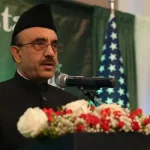Later this month, Shubhangi Sharma will throw a Holi celebration at her family’s opulent Berlin residence. The 34-year-old will spend about €200 (£171; $218) to celebrate the widely observed Hindu festival of colors, which falls on March 25. She will use the money to pay for the Indian food and sweets she will serve friends, purchase the expensive Holi paint online, and wear the traditional clothes she purchased as part of an earlier bulk purchase during her most recent trip to Delhi, her hometown.
The microbiologist Dr. Sharma and her tech-working spouse have unrestricted spending during customary celebrations such as Holi, living with one small kid in a household with two incomes.
“I moved my investments from India to Germany, so now all my savings are here, and I enjoy investing money in different stock profiles and different exchange-traded funds (ETFs),” states Sharma. “We should be finished buying a house by the end of the year. We are currently in the process. It is an investment in our future even though it will use up the majority of our money. All in all, my move to Germany has given me stability and financial flexibility.”
Dr. Sharma is part of a larger Indian community that has moved to Germany in recent years; this population has been steadily growing as a result of more accommodating visa regulations for highly skilled workers. Many English-speaking, educated Indians are finding work, primarily in the sciences, technology,







